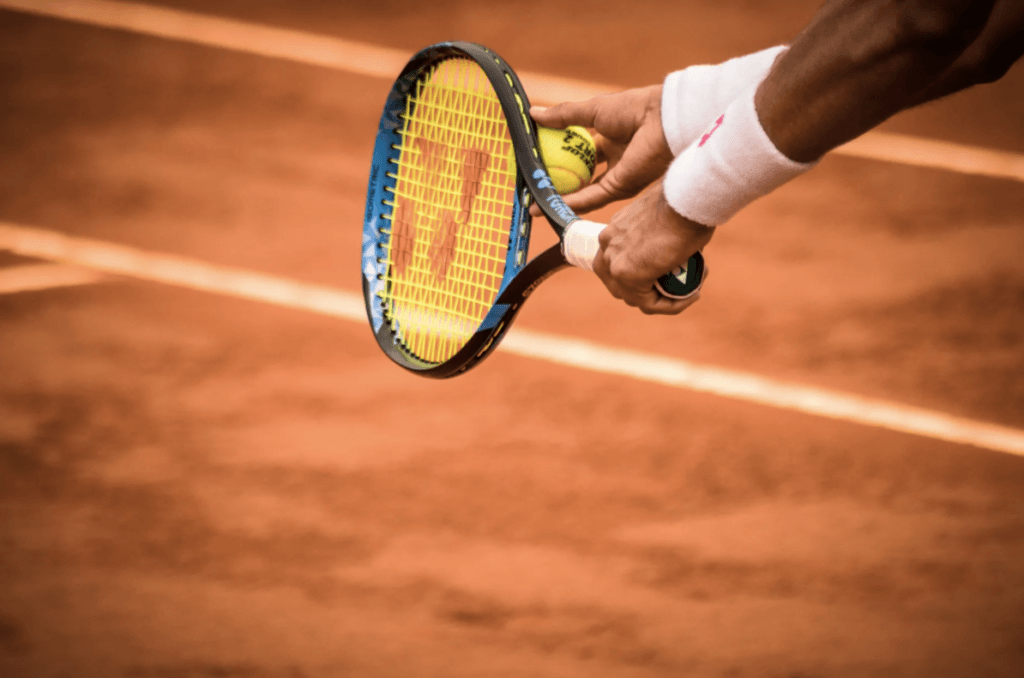No matter how intellectually and academically profound you are, sports can be an equally important aspect of your life. Playing and understanding sports does not just help build physical strength and fitness but also helps to gain skills that will help develop your personality.
One of such mentally and physically engaging sports is tennis. A game of tennis involves different types of play like serving, rallies, fast movements, strategy planning, and more. While it can be a recreational activity between family or students for a competition, it also does a great job of burning calories. Like any other sports, you will need to develop your psychology as a player to strategically make the most out of your time playing and eventually winning. In this article, we will give you a few ways to help you build your tennis psychology:
1. Control Your Thinking
While you may not realize it, a negative mental state can affect the mind game of tennis when performing in the field. Although you may not be aware of it, you could be evoking feelings that affect your physical performance. Reading the psychology of human development essays and other educational materials can help you be conscious of your feelings. Be focused and spend your time working on the elements that you can control – attitude, effort, physical strength, and more. You can get more information on this by reading human development psychology. Knowledge of these topics can ease the player to be fresher and approach the game with solution-based thinking. Your positive mental state can visibly be seen in your performance
2. Building Up On Your Beliefs
One of the tennis psychology tips is to perform better in any game by getting rid of pre-conceived beliefs. Although you may have competitors trying to lower your self-esteem, your subconscious thoughts can affect your performance even more. You can get ideas of how your thoughts are sabotaging your game from many examples of essays related to this. Siebold, the author of “177 Mental Toughness Secrets of the World Class,” says that if you are strong enough to lose and keep fighting, you can be mentally tough and confident that you will do better. The first step to reach this level of mental toughness is by accepting your strength without being driven by anyone’s negative beliefs. It is a progressive way to develop the mental game of tennis.
3. Determining What You Can Control
In a game where you are competing with someone else, there are often little things you can control. A player may show regret and get upset if s/he cannot control or influence a game. When playing tennis, many things like court conditions, wind, luck, noise, and more are generally not under your control. While this regret can push you to lose your confidence, you need to have a clear vision of determining the things you can control. Strategizing and understanding your approach is far healthier on your tennis psychology than blaming the rain or the wind.
4. Improving Visualization and Concentration
When you start a match, you have the highest amount of energy. Your determination pushes your concentration to be at its peak level. However, with time, outside pressure, and emotional reactions, your concentration levels can drop. Do not let the outside world affect you but instead learn how to refocus efficiently with the mind game of tennis and give your best performance. One of the most active tennis psychology tips is to refocus your priorities by imagining and visualizing all aspects of your game. These aspects include technique, physical abilities, mental wellbeing, and strategy planning. Another approach is by being able to recognize and understand your mistake during a game. Try reading a good essay about imagery and visualization to get a better idea.
5. Don’t Be a Perfectionist
A big mistake that many people make when approaching a specific skill is aiming for perfection. This is true not just for the world of sports, but also for entrepreneurship, business, tourism, and more. A perfectionist tends to shut down if they cannot do something right and have a difficult time dealing with adversity. A great way to build upon this is by focusing on improvement rather than perfection. Instead of loathing yourself for not being the best, focus on a few things every day or week that you could improve on. Study the mistakes you made in the matches you lost, and focus on not repeating it. This is equally important when self-talking. Although self-talk is a very effective way to develop your psychology as a player, being self-critical, and judging yourself can be very harmful. Instead, be positive and talk with confidence and commit to doing better.
A successful tennis player is about being physically fit and being able to balance your mental health. As a tennis player, you will want to develop the psychological aspect of your games so that you enjoy what you do. You can implement many of these skills in many aspects of your personal life as well. Following these tennis psychology tips can push you to develop your psychology as a player.



